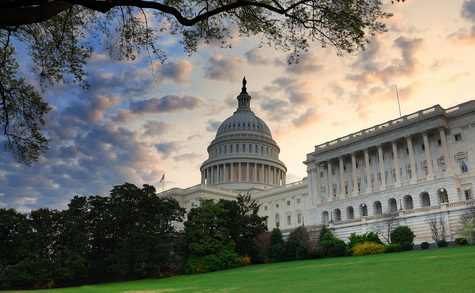
President Joe Biden signed his landmark $1.9 trillion pandemic relief package (H.R. 1319) into law yesterday – the largest injection of federal cash in history into a growing U.S. economy – before unemployment benefits begin expiring on March 14. (Politico March 9, Wall Street Journal March 10 and AP, March 11)
Why It Matters
- The total economic stimulus passed by the U.S. government over the past year now totals $5.3 trillion. The American Rescue Plan Act of 2021 is the third and largest coronavirus relief package. (U.S. News and World Report, March 10 and Axios Capital, Mach 11)
- President Biden commented during the signing ceremony of the relief package, “…this historic legislation is about rebuilding the backbone of this country and giving people in this nation — working people and middle-class folks, the people who built the country — a fighting chance. That’s what the essence of it is.” (White House, March 11, Remarks by President Biden at Signing of the American Rescue Plan)
- Key provisions of the new law are detailed in The Roundtable’s “Summary and Analysis of Key Economic Provisions in The American Rescue Plan.” Recovery rebates of $1,400 for the vast majority of Americans and large one-year expansions of the child and child care tax credits are provided, along with increases in subsidies for health insurance and the earned income tax credit. Additional provisions include:
- $350 billion in direct fiscal aid to state and local governments
- $242 billion to extend enhanced unemployment benefits through Sept. 6
- $170 billion for educational institutions
- $28.6 billion for a Restaurant Revitalization Fund
- $26.1 billion for urban mass transit grants
- $21.55 billion for residential rental assistance
- $5 billion for tenant-based residential rental vouchers
- The bill does not include an extension of the current eviction moratorium for residential tenants or an increase in the federal minimum wage.
- While there is little business tax relief in the bill, provisions excluding restaurant and small business grants from income tax should further strengthen The Roundtable’s push to exclude COD income from tax during the pandemic, particularly since The Roundtable has explicitly proposed that the exclusion be accompanied by offsetting adjustments to tax attributes.
- The Roundtable is also continuing to urge Congress to enact the Retail Revitalization Act (H.R. 840) as part of its relief efforts. This bill would save thousands of retail jobs by allowing REITs to make equity investments in struggling tenants without violating current related-party rent rules. The bipartisan bill is cosponsored by a growing list of Ways and Means Committee Members. (Roundtable Weekly, Feb. 5, 2021)
Reference:
- The Roundtable’s “Summary and Analysis of Key Economic Provisions in The American Rescue Plan”
- Fact sheet issued by House Speaker Nancy Pelosi (D-CA)
- Joint Committee on Taxation revenue estimate of the tax provisions in the bill
- Congressional Research Service report on the bill’s tax provisions
What’s Next
- Economists expect the legislation to spark 5.95% GDP growth, the fastest in nearly 40 years, according to a recent survey by the Wall Street Journal. The poll also reports that economists expect consumer prices will rise 2.48% by December, compared to last year, and projects employers will add an average 514,000 jobs per month over the next four quarters. (Wall Street Journal, March 10)
Congressional Democrats passed the massive relief package using a budget process called reconciliation that requires a simple majority vote, bypassing the 60-vote requirement typically needed to advance most legislation in the 50-50 Senate. It is uncertain whether Democrats will opt to take a similar approach to other major policy initiatives as President Biden prepares his next major legislative push on infrastructure.
# # #




